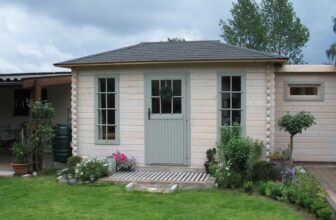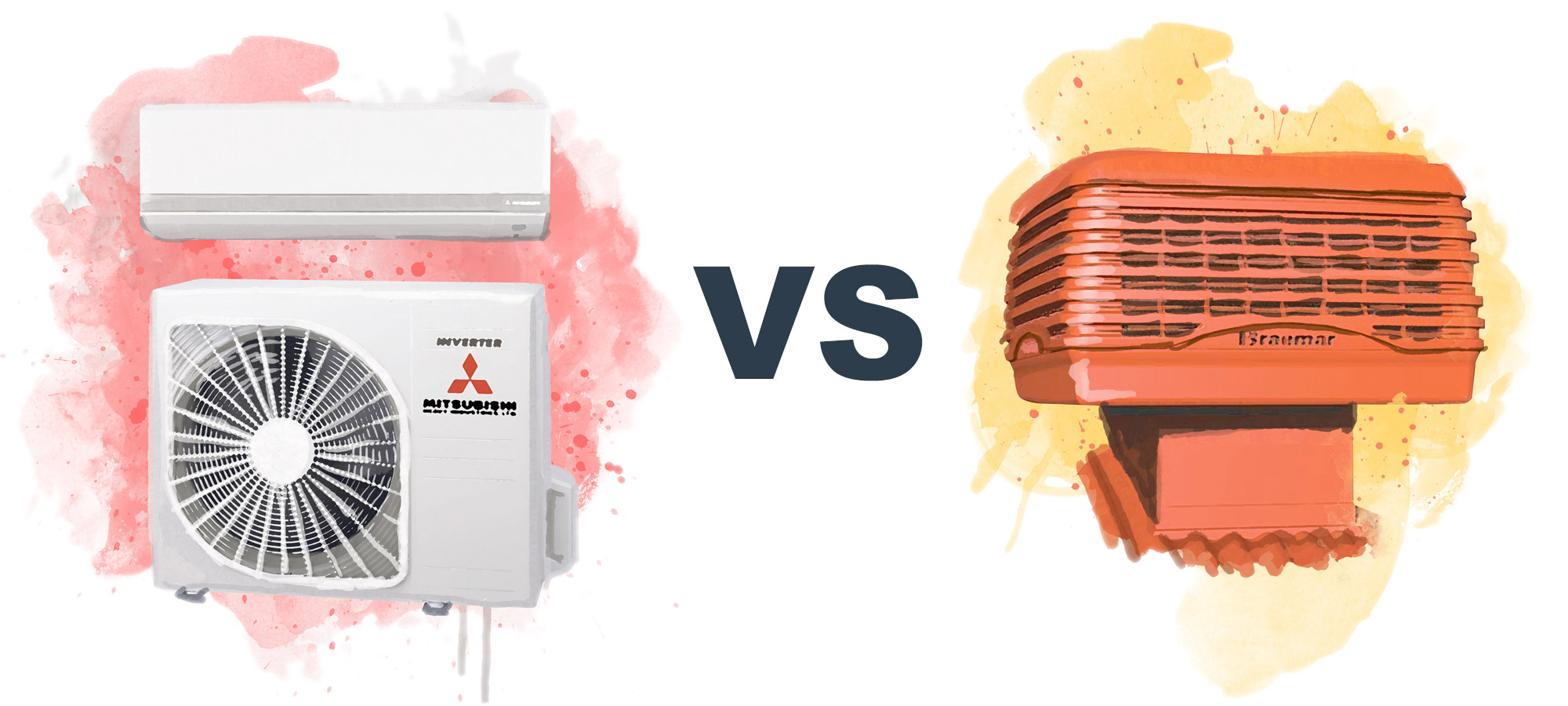
When the summer months arrive and you want to get refreshing, cool air, you have two options: an air conditioner or an evaporative cooler. These cooling systems have their own share of advantages, but the question of which of them is more advantageous has long been a subject of debate among HVAC professionals. With utility costs hitting the roof, energy resources dwindling, and environmental concerns growing, it’s worth revisiting the differences between air conditioners and evaporative coolers so you can decide which of them provides a more efficient solution to cooling your home.
In this article from Sun City Air, let’s take a look at the differences between air conditioning and evaporative cooling systems:
Table of Contents
How they work
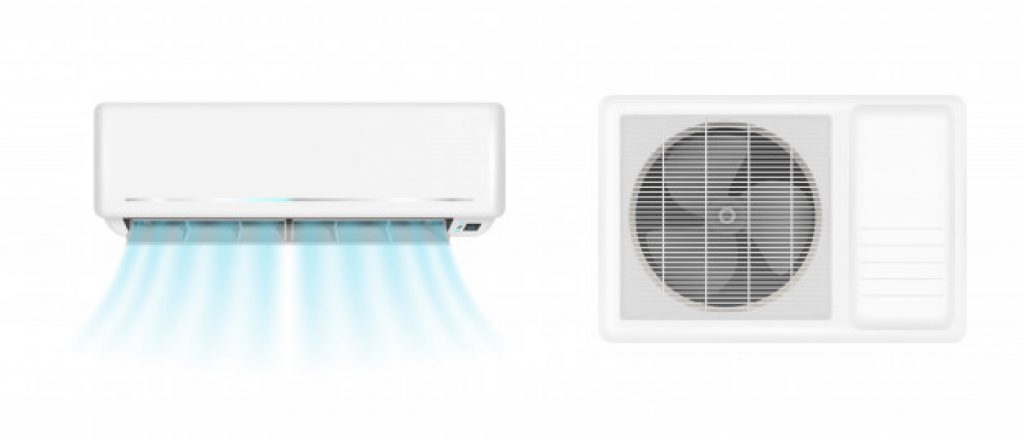
Source: freepik.com
Ever wondered how your air conditioner cools your home? Well, air conditioners and evaporative coolers do not work the same way when cooling down a home. The indoor and outdoor units of a split-type air conditioner work together to replace the warm air inside your home with cooler air from outside before using freon to cool down your home and get the temperature you require. It is amazing in that it separates the temperature from humidity as it operates. Its indoor unit comes with a blower with evaporating capabilities, while its outdoor unit has compressors and condenser coils. Just like a split-type aircon, the outdoor unit of an evaporative cooler also works in gathering the air and disseminating it through wet cooling pads, while the indoor unit releases the air into the home. But that is just about the only thing that makes air conditioners similar to evaporative coolers.
The biggest difference between the two cooling systems is that while a split type air conditioner uses freon to cool down your home, an evaporative cooler cools your home through evaporating water. The reason why it’s called a swamp cooler is that it uses water-soaked pads to cool the air. This appliance is able to cool the air as its fan pulls warm air into the unit, and then sends it through a series of pads. Once the collected air is disseminated to the cooling pads, the pads help evaporate the moisture into a gas which then blows out cooler air. If that’s hard to visualize, just imagine rubbing cold water onto your skin on a scorching hot day.
Room
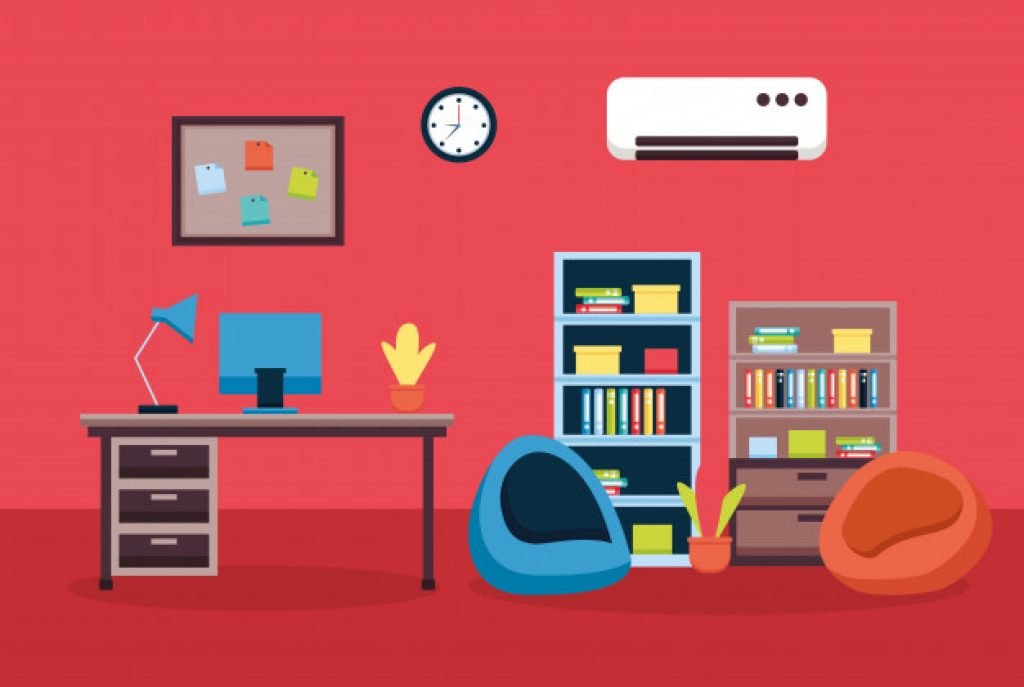
Source: freepik.com
One major advantage of an air conditioner over an evaporative cooler is that with the former, you need to leave all your doors and windows closed. How is that an advantage, you ask? Well, you may think that cracking all your doors and windows with an evaporative cooler lets you have that fresh feeling. But while you get to experience that fresh blast of cool air with coolers, leaving your windows and doors open also means being unable to shut out all the sounds coming from your surroundings. And maybe bugs, too! Well, in this aspect, you will find that both have their potential drawbacks so we’ll just leave it to your personal preference. If you hate the idea of relaxing on your couch with all your doors and windows open, then an air conditioner might be the better choice for you. Otherwise, go for an evaporative cooler.
Functionality
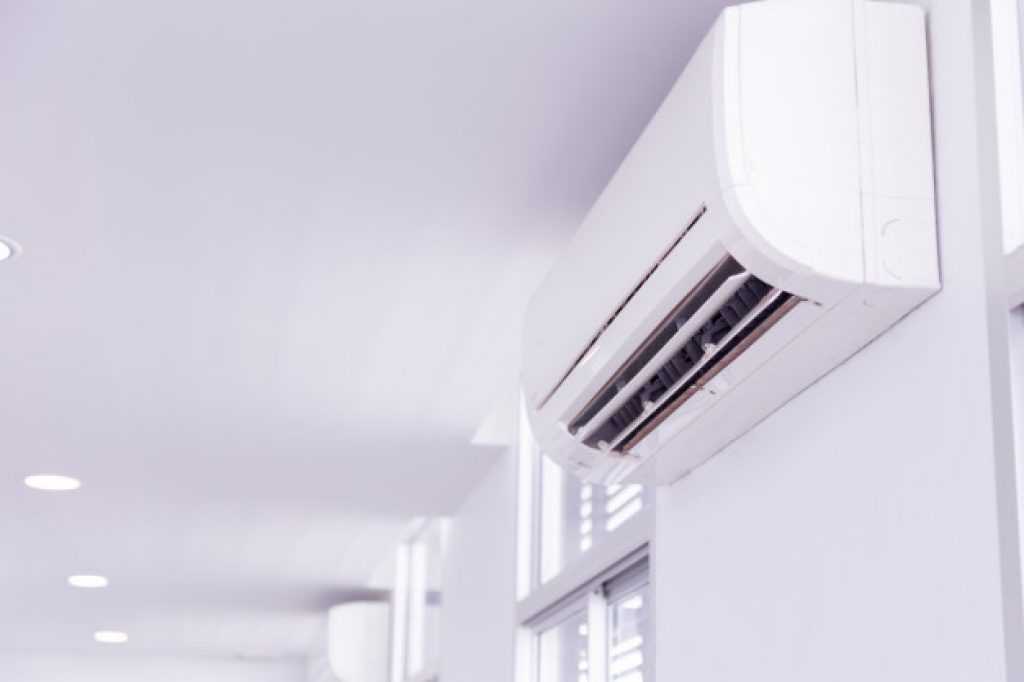
Source: freepik.com
While air conditioners are most commonly used in humid areas, evaporative coolers do not work as well in high humidity environments. Why? Think about this: Since evaporative coolers rely on outside air, that means they can readily be impacted by the weather. That also means that when it gets too rainy or it gets extremely hot, you can’t expect your evaporative cooler to function as well as it would when the weather is nice. This explains why you will most likely find evaporative coolers in places with dry conditions. Alternately, air conditioners work independently of the weather. No matter how unpredictable the weather can get, you can expect your air conditioner to give the same level of comfort inside your home.
Maintenance
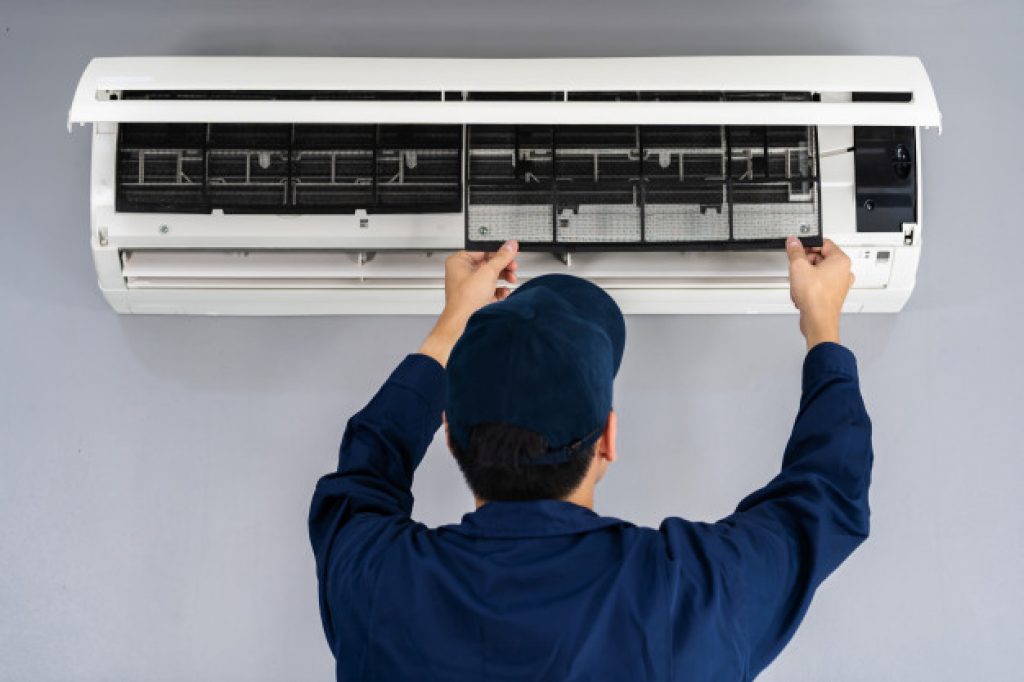
Source: freepik.com
Whether you are using an air conditioner or an evaporative cooler, making sure that your appliance is free from dust mites and other allergens is a must. Proper maintenance of your appliance does not only ensure that it is safe to use but operates effectively as well. Since air conditioners and evaporative coolers have different components, there’s also a huge difference when it comes to how you perform maintenance checks on them. For instance, if you want to make sure that your evaporative cooler is working effectively, you will have to get your cooling pads serviced regularly. Why? Because its wet pads and fan parts can become a breeding ground for bacteria and molds! If you are using an air conditioner, you must also make sure that its filters are regularly cleaned to ensure that the appliance is able to recirculate the air effectively. Replace it if you must.
Running costs

Source: freepik.com
When we talk about price, the major difference between an evaporative cooler and an air conditioner comes down to their running costs. Just like with any appliance, it pays to buy a model with a higher energy efficiency rating, especially if you are worried about the long-term running costs or looking to replace your current unit. The annual energy usage costs for evaporative coolers and air conditioners vary depending on the capacity of the unit you are using and the size of the room it needs to cool down. Generally speaking though, you could save less by using a standard evaporative cooler instead of an air conditioner.
Conclusion
The question of whether you should buy an air conditioner or an evaporative cooler depends on your needs. When you shop for a cooling system for your home, you have to be clear on what you’re after—Versatility? Cost-effectiveness? Functionality? If you want a cooling system that can function effectively regardless of the weather, go for an air conditioner. At the end of the day, the amount you will spend on your cooling system will depend on the cooling capacity of your chosen appliance, the special features that come with it, and how often you use it.





